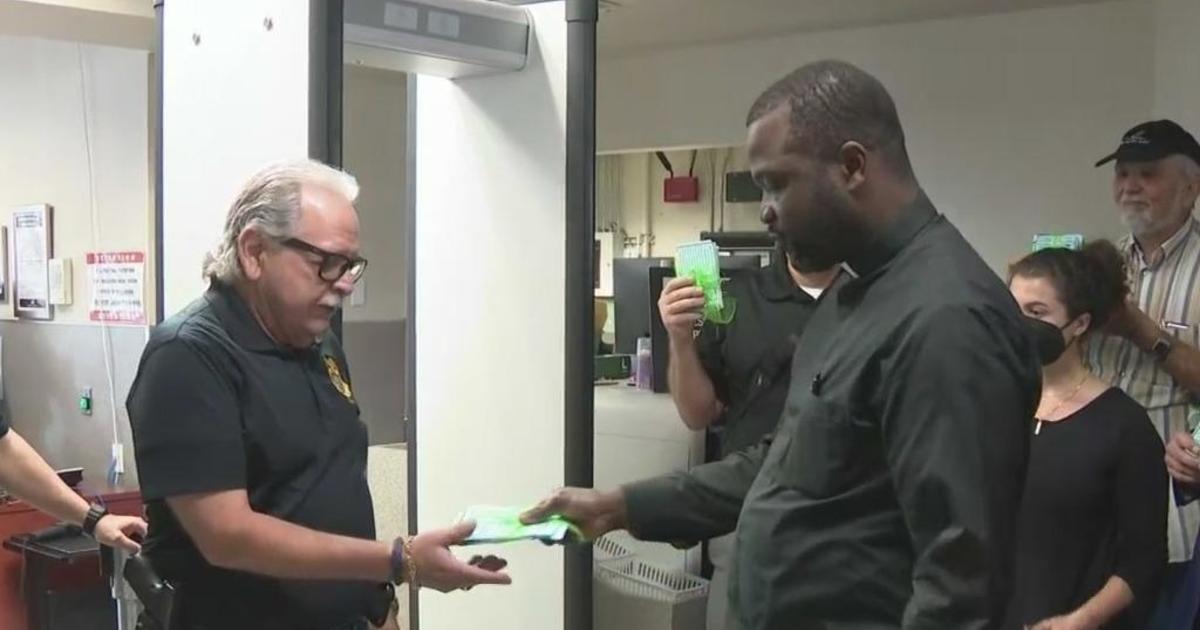Bio Hacking: Modifying The Body For Everyday Conveniences
Follow CBSMIAMI.COM: Facebook | Twitter
MIAMI (CBSMiami) – We live in a digital world filled with computers, cell phones even fitness trackers.
People now use technology for everyday conveniences by learning how to "hack life."
But how far would you go to make life easier?
Krissy Heishman is implanted with a tiny, low frequency microchip.
The process is called bio hacking.
It's the size of a grain of rice implanted between her right index finger and her thumb.
Why would someone do this? Convenience for one.
Heishman said it was to end the hassle of carrying a security badge at work.
"So I'd be swiping this thing every time I went in and a lot of times I'm carrying this stuff and it was really inconvenient," says Heishman.
So, with just a wave of her now bionic hand, Heishman's identity is scanned and verified.
Carlos Maldanado is chipped as well, but his implant is different.
It communicates with his cell phone, and other gadgets, by simply touching them.
"I'm a tech nerd. I want it to unlock my electronics," he said.
He can use it to keep his car locked too.
With wireless technology shrinking, microchipping is becoming more mainstream.
But getting implanted isn't happening in a doctor's office or at a hospital.
This "experience" is offered to body modification clients at tattoo and piercing shops – just like one in Coconut Grove.
"I think it's the future, microchip implants, and it's the simplest thing to do," Noel Garcia said.
Garcia is among very few people in the country performing this procedure.
How is it legal to do something like this at a piercing shop?
"It really is no different than getting a flu shot," Garcia said. "It's really a basic body piercing technique."
He said he's done about a dozen in the past couple of years.
Anyone can buy the implants and the syringe at DangerousThings.com.
It's use at your own risk, but the founder of DangerousThings.com, Amal Graffstra, suggests being implanted by a doctor or a licensed body piercer.
"Most of our customers know what they're doing and they understand the risk," Graffstra said.
Graffstra runs the Seattle based company.
He said business is booming.
"Our devices are nonmedical in nature. They're used for all kinds of identity applications. Access control, getting in your house, logging in your computer, that kind of thing so it doesn't fall under the requirement of the FDA to be approved," he said.
It's the reason why people like Garcia can do this legally with no questions asked.
"This microchip is personal. I really don't ask if you have a special Ferrari that you need to open the door with or do you have secret doors. We really don't ask," Garcia said.



